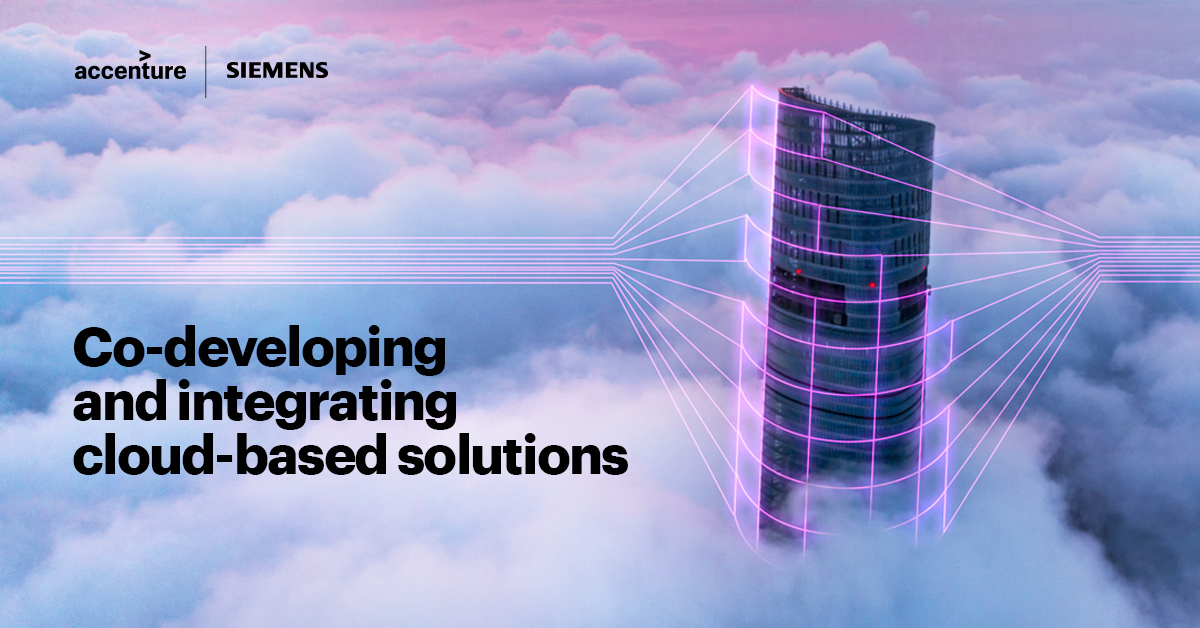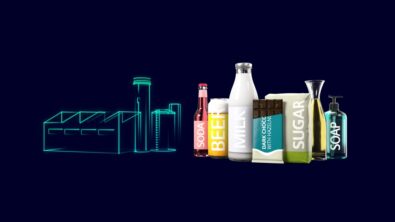CPG digital transformation: Siemens’ and Accenture’s enhanced approach to industry challenges

The consumer packaged goods (CPG) market is facing constant challenges due to evolving consumer demands, market trends, and technological advancements. To stay competitive and meet changing consumer preferences, CPG companies need to adopt an agile and flexible approach throughout their product development process. To address these industry trends and challenges, Siemens and Accenture have collaborated to design a comprehensive solution that enables end-to-end capabilities in the CPG sector. This blog post will explore key insights into the CPG industry challenges and discuss recommendations and the benefits of implementing this enhanced approach to CPG digital transformation.
Challenges faced by CPG companies
CPG companies face numerous challenges in today’s market. They must navigate shorter product development timelines, adapt to expanding markets, prioritize sustainability, differentiate their products, and overcome data-related hurdles.
- Tight timelines: Companies have limited time to respond to consumer demands, often just weeks. Agility is crucial for successful product launches and discontinuing ineffective ones.
- Expanding markets: Easy updates to labeling and packaging are essential for companies venturing into new markets. Adapting to regional regulations and consumer preferences is crucial for success.
- Sustainability: Consumers and investors expect sustainable practices throughout the product lifecycle. Eco-friendly packaging and environmentally friendly disposal are key considerations.
- Product differentiation: Standing out from competitors is vital. Agility and effective systems are required to meet evolving demands based on quality, price, performance, and reliability.
- Data challenges: Inaccurate data, regulatory inquiries, lost revenue, and difficulties in R&D to manufacturing transfers pose hurdles that need to be addressed.
By tackling these industry challenges through innovation, efficient processes, and a focus on agility, CPG companies can thrive in today’s ever-changing marketplace.
The limitations of the traditional approach to CPG product development
The traditional approach to CPG product development relies on multiple systems that lack effective communication, resulting in errors, delays, and limited collaboration across business functions. This fragmented approach hampers agility and fails to provide comprehensive insights.
- Fragmented systems: Multiple systems that lack effective communication result in errors, delays, and limited collaboration across business functions.
- Data silos and slow time-to-market: Siloed data and lengthy development timelines hinder success rates for new product launches, making it difficult to keep up with evolving consumer demands and market trends.
- Reactive decision-making: Relying on incomplete or outdated information leads to suboptimal decision-making, hampering the ability to proactively respond to market changes.
To overcome these limitations, an enhanced approach is necessary to enhance success rates for new product launches and seize market opportunities with agility and efficiency.
Industry trends driving the need for an enhanced approach
Consumer needs and preferences in the CPG industry are rapidly evolving, requiring companies to adapt to key trends in sustainability, health and wellness, personalization, and innovation.
- Sustainability: A growing concern for consumers, who demand environmentally responsible practices throughout the product lifecycle. CPG companies are taking steps to reduce carbon footprints, use eco-friendly packaging materials, minimize waste, and promote sustainable production.
- Health and wellness: Consumers seek products that prioritize their well-being and that of their loved ones. CPG companies are responding by offering healthier options, transparent ingredient sourcing, and clear communication about product benefits.
- Personalization: As consumers look for tailored products that match their specific needs and preferences, CPG companies are diversifying their offerings with customized food, beauty products, and a wider range of product variants to cater to niche markets.
- Innovation: Crucial in meeting evolving consumer demands, CPG companies are investing in research and development. Leveraging technology such as AI and ML, they strive to create more efficient and effective products that align with consumer needs.
By embracing these trends, CPG companies can stay ahead of the competition and deliver products that resonate with consumers’ values and desires. Adapting to sustainability, health and wellness, personalization, and innovation is vital for long-term success in the ever-changing CPG landscape.
The enhanced approach to CPG digital transformation
Siemens and Accenture have joined forces to develop a cloud-based digital thread-enhanced solution for CPG product development. This unique collaboration combines Siemens’ expertise in automation and digitalization with Accenture’s industry knowledge to deliver complex products faster and at lower costs. Key features of this enhanced approach:
- End-to-end capabilities: The cloud-based solution covers the entire CPG product lifecycle, integrating existing software components like PLM, project management, and design applications. It creates a cohesive digital thread, ensuring data consistency and providing a single source of truth.
- Leveraging existing data: Organizations can leverage their existing data to address product complexities, from packaging and labeling updates to compliance with regional regulations. This agility reduces time and effort in launching new products.
- Reduced costs and increased flexibility: Siemens’ product solution capabilities combined with Accenture’s process improvements enable cost reduction, increased flexibility, collaboration, and innovation without replacing existing applications.
- Integrated lifecycle management: The solution synchronizes marketing, development, and manufacturing efforts through a unified data backbone, improving efficiency and addressing key challenges in the CPG industry.

By adopting this enhanced approach to CPG product development, companies can accelerate time-to-market, reduce costs, improve collaboration, and drive innovation. Siemens and Accenture’s joint solution empowers organizations to stay competitive in the rapidly evolving CPG market.
Market experience with the enhanced approach
Implementing an enhanced approach in CPG product development brings several benefits to organizations. Here are three key advantages:
Streamlining packaging and labeling practices:
- In-house control, enabling quick adjustments
- Seamless data flow for efficient market entry
- Agility to respond to market demands and regulations
Supporting multiple PLM systems:
- Central backbone and interface for diverse PLM platforms
- Effective data sharing and collaboration among stakeholders
Migrating to in-house design capabilities:
- Enhanced product upgrades and customization
- A holistic view of operations and supply chain needs
- Streamlined processes, reduced costs, and improved quality
The Siemens and Accenture CPG solution empowers organizations to leverage the digital thread, driving responsiveness, agility, and competitiveness while preserving existing technology infrastructure.
An enhanced approach to CPG product development: A path to success
To stay competitive in the rapidly evolving CPG industry, companies should adopt an enhanced approach to product development. The Siemens and Accenture advanced PLM solution for CPG offers end-to-end capabilities, seamless integration, and improved collaboration using a holistic digital thread approach. By leveraging existing technology, organizations can respond to consumer needs, accelerate time-to-market, and drive innovation. Embracing this solution enables companies to navigate challenges, improve processes, and gain a competitive edge in the dynamic CPG market. To learn more about leveraging an enhanced approach, read the full white paper here.


